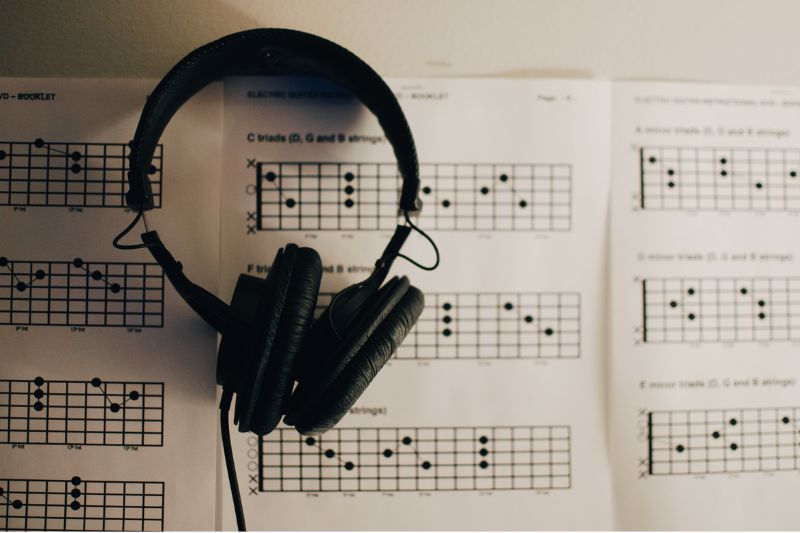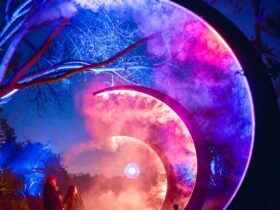No products in the cart.
Fundamentals of Music Licensing For New Artists

Music licensing is an incredible opportunity for artists that allows them to earn extra money from their creative masterpieces. As a new artist, it is up to you to get started with music licensing to ensure that you are not leaving money on the table.
You’ve probably heard songs being used in commercials, films, and video games among other forms of media. These songs are licensed and the artists get to earn when their songs are used.
Music licensing also offers a great opportunity to gain more exposure and build your brand. However, you need to ensure that you are doing it right to allow you to reap better rewards from your music.
What is Music Licensing
Music licensing is basically giving legal permission for your music to be used in a moving picture. It involves set terms on a legally binding document or contract stating who will use your music, how they’ll use it, and for how long.
When licensing your music, it is important to note that you’ll be dealing with different moving parts and not just your song. Licensing may also apply to sheet music, master recording, and live performance.
How to License Your Music
As a new artist, you first need to figure out who owns what especially if you’re signed by a record label. If you are a solo act and produced your song yourself, then you own 100% of your song’s rights.
However, if your songs were published by a record label, and you have a standing publishing deal with them, you’ll find that the rights are split. 50% could be the writer’s share (your share) and 50% could be the publisher’s share for recording the song.
Once you know how the rights are split, you’ll need to get your songs registered with a performance rights organization (PRO). Some great examples include BMI, SESAC, and ASCAP.
The purpose of these organizations is to help track your performance royalties on the different types of media to ensure you get paid your dues. Once your music is licensed, you’ll get paid through your preferred organization.
Types of Music Licenses
When you choose to license your music, you’ll get introduced to different types of licenses that serve different purposes. Some of the music licenses include;
Synchronization License (Sync License)
The sync license is quite common and most new artists opt to start with this. It involves licensing music to be used with visual media. Music used in commercials, news segments, TV shows, and films is mostly under this type o music license.
Mechanical License
A mechanical license comes in handy when reproducing an artist’s songs physically. For instance, in the manufacturing and distribution of CDs, all the copyright holders will have an agreement.
The agreement falls under the mechanical license clearly stating the terms of their copy and how they’ll be paid. This license is also used when artists want to record a cover song to ensure all the parties involved are covered.
Public Performance License
Mainly managed by PROs, this type of music licensing is another great option for new artists. It covers a broader spectrum where rights holders get compensated when their music is played in different avenues.
These avenues could include radio, websites, music scenes, nightclubs, restaurants, and concerts among others.
Master Recording License
In most cases, a master recording license is issued alongside a sync license. The master license gives the recipient the right to use the original song to their specific requirements. However, the song cannot be edited and is to be used as an original version.
Print License
A print license is used when reproducing the physical copy of the sheet music or lyrics.
Blanket License
For deals or establishments that need to use music in the background and want to invest in a collection of songs for a longer period, this is a great license option. It can involve a flat annual rate that gives them access to a portion of the artist’s songs or a collection.
Getting the Most Value for Your Music
Licensing your music and ensuring that it is rightly copyrighted allows you to protect your creative works and earn from it. When people use copyrighted music without permission, they need to pay penalties to PROs and also pay for a license.
A similar framework applies to social media platforms like YouTube. You’ll often find creators on YouTube who are very cautious to avoid having copyrighted music in their videos.
If YouTube finds a video with images or music that has been used without the proper permission, they’ll notify the rights holders. The rights holders can then choose to file for a copyright strike or a copyright claim.
There is a difference between a YouTube copyright claim vs. copyright strike. A YouTube copyright claim allows the rights holder to choose to allow the creator to keep the video up but with restrictions. On the other hand, with a copyright strike, the video is removed completely.
So, ensuring your music and creative works are licensed is essential to ensure they are used with the right permissions. In addition, it allows you to determine the kind of brands and creators your music is affiliated with especially when approached for commercials and films.
Conclusion
Music licensing is an essential aspect that as a new artist you need to get started with. It will allow you to earn extra income and protect your music from being used in the wrong setting. Take your time to determine the type of licenses that suit you and copyright your music.










Leave a Reply